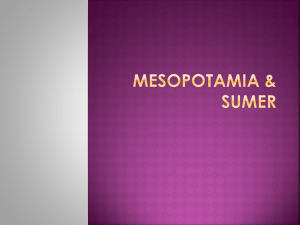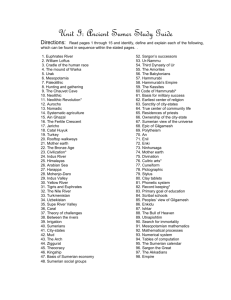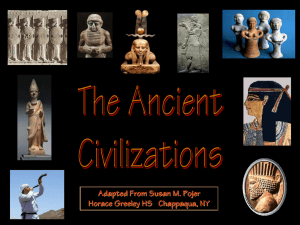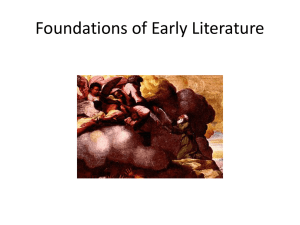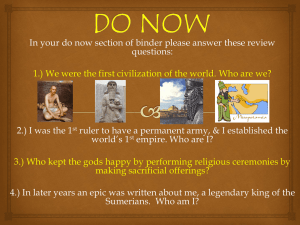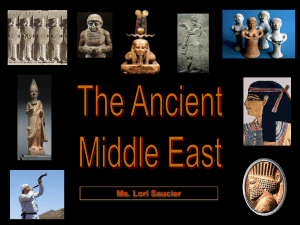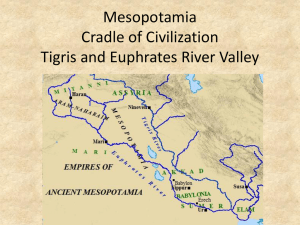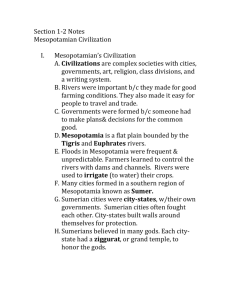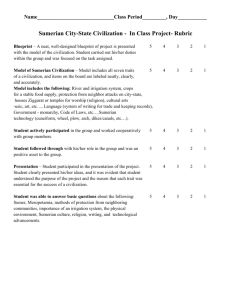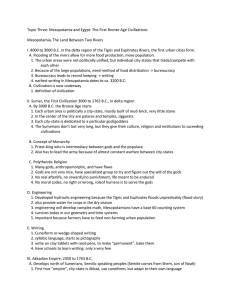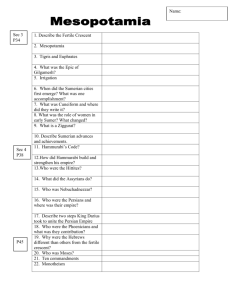Print › Early Civilizations & Empires | Quizlet
advertisement
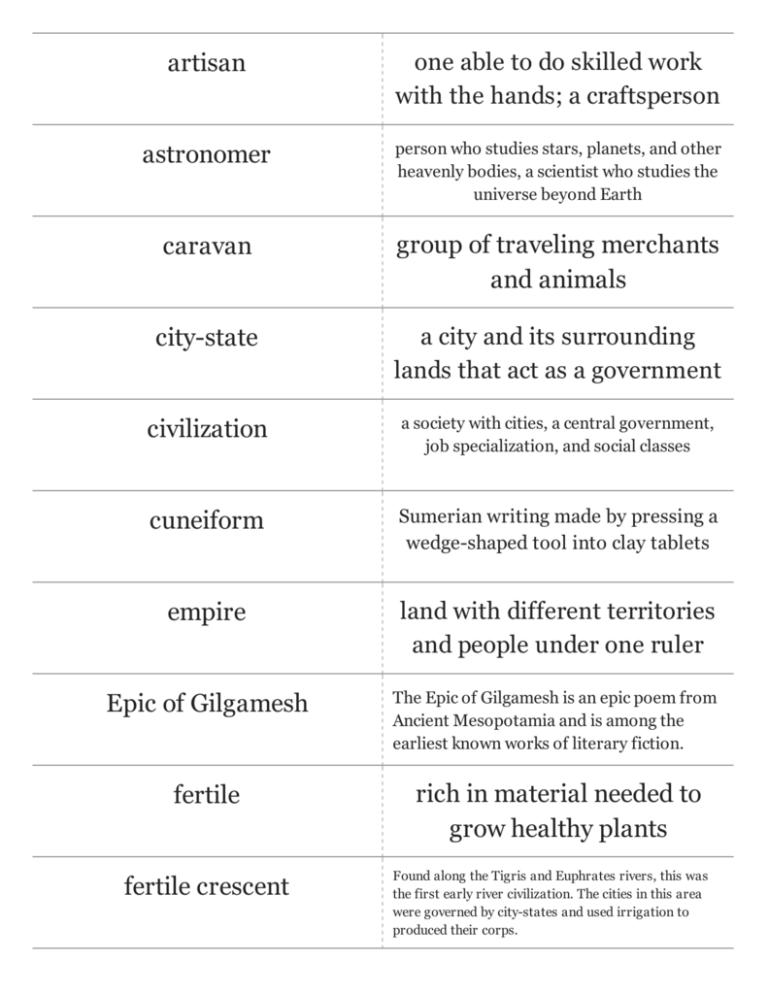
artisan one able to do skilled work with the hands; a craftsperson astronomer person who studies stars, planets, and other heavenly bodies, a scientist who studies the universe beyond Earth caravan group of traveling merchants and animals city-state a city and its surrounding lands that act as a government civilization a society with cities, a central government, job specialization, and social classes cuneiform Sumerian writing made by pressing a wedge-shaped tool into clay tablets empire land with different territories and people under one ruler Epic of Gilgamesh The Epic of Gilgamesh is an epic poem from Ancient Mesopotamia and is among the earliest known works of literary fiction. fertile rich in material needed to grow healthy plants fertile crescent Found along the Tigris and Euphrates rivers, this was the first early river civilization. The cities in this area were governed by city-states and used irrigation to produced their corps. gulf an arm of a sea or ocean partly enclosed by land Hammurabi King of the Babylonian empire; creator of the Code of Hammurabi, one of the world's oldest codes of law. irrigation The process of supplying water to areas of land to make them suitable for growing crops. Mesopotamia first civilization located between the Tigris & Eurphrates Rivers in present day Iraq; term means "land between the rivers;" Sumerian culture Nebuchadnezzar A Babylonian king who conquered Jerusalem,and built the Hanging Gardens of Babylon province territory governed as a unit within a country or empire; political district Sargon leader of the Akkadians, overran the sumerian city-states and set up the first empire in world history scribe one of the professional record keepers in early civilizations social class a group of people with similar backgrounds, incomes, and ways of living Ziggurat a massive stepped tower on which was built a temple dedicated to the chief god or goddess of a sumerian city
